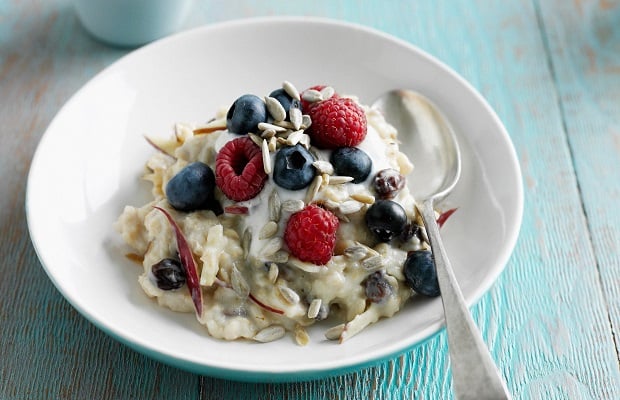As soon as fruit and vegetables are picked, they start to lose nutrients. It can take some time for them to be transported to shops, plus time in the shop and then in your kitchen before you eat them.
Frozen fruit and vegetables are frozen shortly after they’ve been harvested and this helps to preserve the nutrients until you eat them.
Fresh or frozen, fruit and vegetables that don’t have any added ingredients are healthy choices.
Vegetable dishes like vegetable soups, cauliflower cheese or frozen vegetable mixes with seasonings added can still help you towards your 5-a-day, but are likely to include added salt, and potentially saturated fat too. So check the labels carefully when you’re doing your shopping so that you know what else these are adding to your diet.
We should all be eating at least 5 portions of fruit and vegetables each day, but many of us are still not.
Fresh, frozen, tinned, dried and juice all count - but juice can only count as one portion a day (150ml is the portion size), and tinned only count if they’re tinned in water or juice, without added salt or sugar.
And it’s a myth that organic fruits and vegetables are more nutritious - evidence suggests there is no clear health benefit. Organic varieties contain the same nutrients, vitamins and minerals as those grown conventionally.
 Meet the expert
Meet the expert
Victoria Taylor is a registered dietitian with twenty years’ experience. Her work for the NHS focused on weight management and community programmes for the prevention of cardiovascular disease. At the BHF she advises on diet and nutrition.
What to read next...








 Meet the expert
Meet the expert

